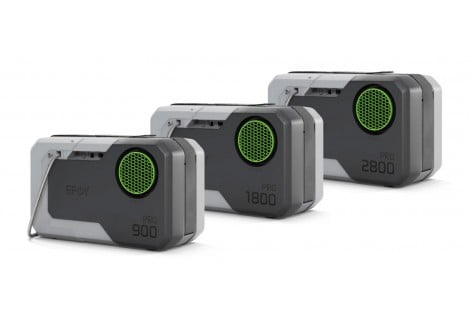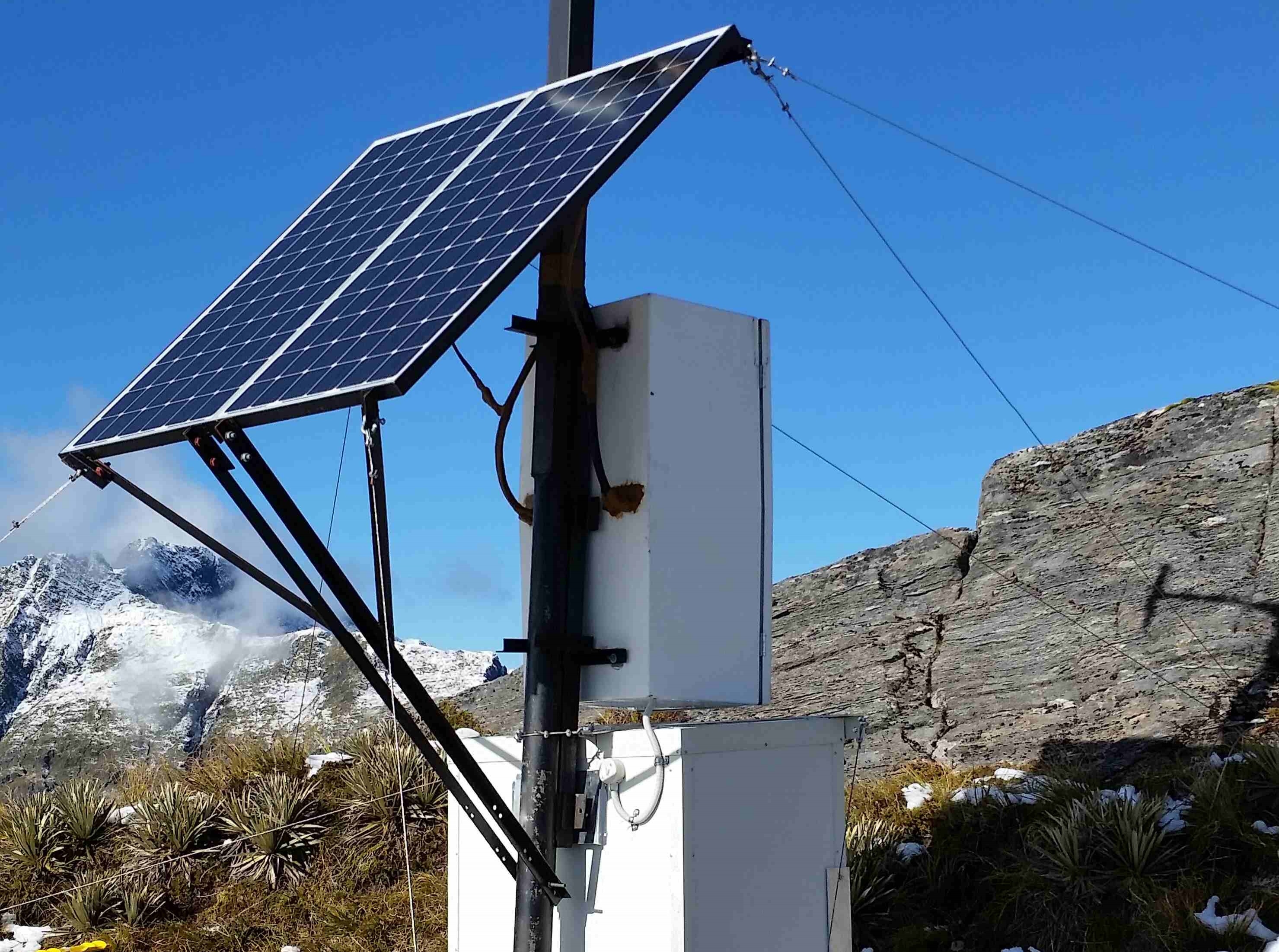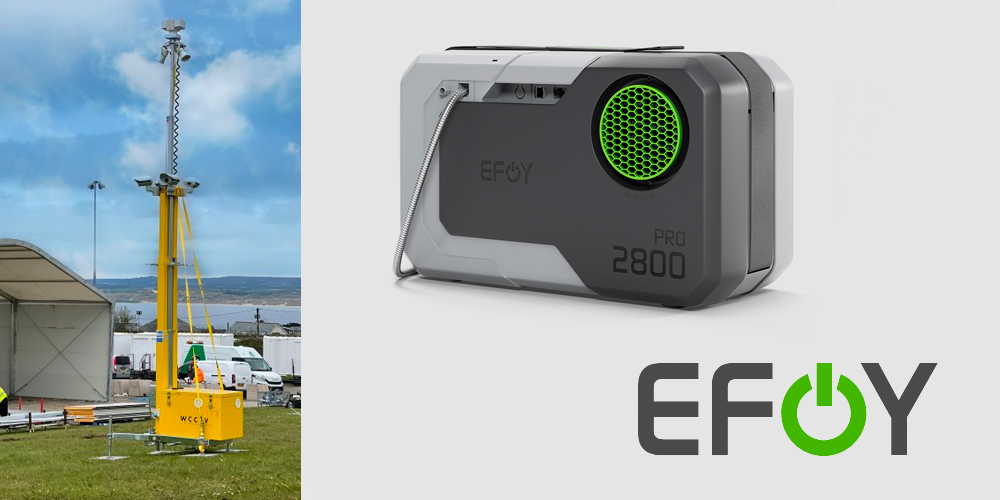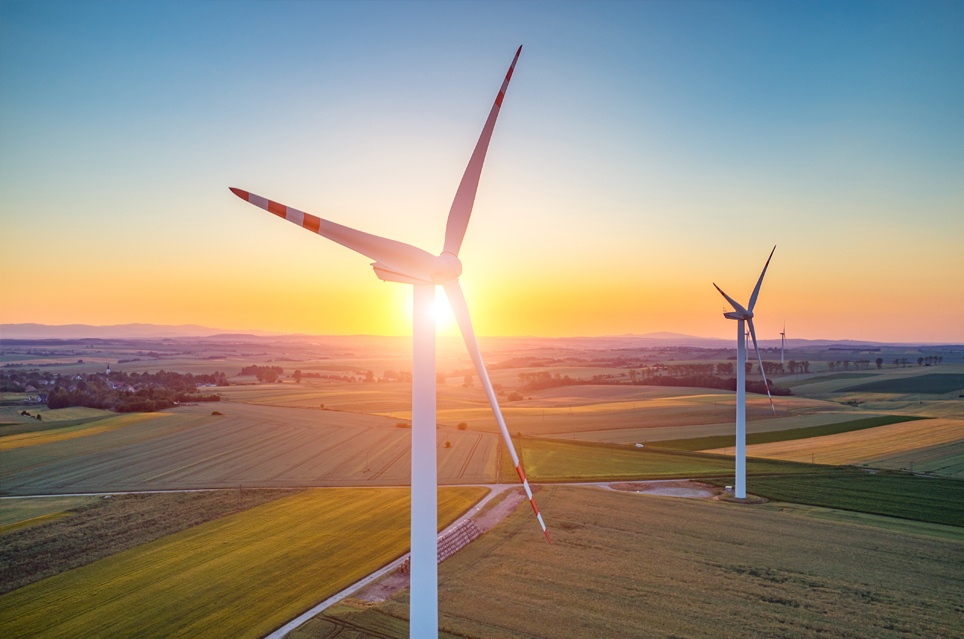In Felix's recent trip to Australia we had the opportunity to have a chat about the Australian off-grid security market and importance of reliable green energy to keep surveillance operations online 24/7.
Key Insights From Our Interview With Felix Brecht:
- Massive Demand for Mobile CCTV in Australia
- Shift Towards Green Energy Solutions
- Importance of OPEX Over CAPEX
- Challenges with Traditional Power Sources
- Advantages of EFOY Pro Fuel Cells
- Future of Green Energy in the Security Sector
Interviewer: During your recent visits to Australia, Felix, what are some of the key mobile CCTV trends or challenges you've observed?
Felix Brecht: I've met with several CCTV players, including distributors and integrators, over the past few months here in Australia. The first thing I noticed is that the CCTV market is massive. There's a significant demand for mobile CCTV applications, which we at SFC Energy see as a global trend, but it’s particularly pronounced here in Australia due to the country's vast and remote areas. There's a growing need for off-grid CCTV solutions in these regions.
When it comes to trends, I definitely see companies starting to focus more on green energy solutions—environmentally friendly options. Although the market is still quite conservative, some players are noticing that end customers are slowly beginning to ask for alternatives to diesel. This is precisely the kind of solution we can offer. I'm also convinced that in the future, governments and companies will impose very strict CO2 targets. At some point, you'll have to switch to environmentally friendly energy solutions, especially in industries like mining.
Interviewer: Especially in the mining sector, right?
Felix Brecht: Yes, particularly in mining. Many mining companies already have CO2 targets in place and aim to go green by 2035 – Source, PwC https://www.pwc.com.au/industry/mining/global-mine-2023/global-mine-2023-report.pdf. They will need to replace diesel gensets. Another trend I've noticed is that traditionally, companies focus on CAPEX (capital expenditure) when purchasing new energy solutions, but now I've spoken with several customers who are more interested in OPEX (operating costs). With diesel gensets, the initial investment might be low, but the ongoing high maintenance costs add up over time. These are costs you don't have with our solutions, so when looking at total cost of ownership (TCO), it’s much more favourable.
Key Takeaways on Green Energy Trends in Mobile CCTV
- Shift Towards Green Energy: There is a growing demand for environmentally friendly energy solutions in mobile CCTV, driven by the need for off-grid applications, especially in remote areas.
- Focus on OPEX Over CAPEX: Customers are increasingly considering operating costs, not just the initial capital investment, leading to a preference for solutions with lower long-term costs.
- Imminent CO2 Targets: Companies are beginning to prepare for stricter CO2 regulations, making the transition to green energy solutions inevitable.
Interviewer: That makes a lot of sense. Could you talk about the importance of reliable green backup power, especially for mobile CCTV surveillance systems in off-grid or remote areas? How critical is it?
Felix Brecht: Many players currently rely on solar panels and batteries, but the challenge arises when you have several days of bad weather. If your system goes offline, it’s a nightmare for CCTV providers because it means no security coverage during that downtime. Imagine if criminals decided to act during that period; it's the worst-case scenario. This is why our customers come to us—we can provide reliable energy 365 days a year.
Common Power-Related Challenges in Mobile CCTV
- Weather-Dependent Systems: Solar panels and batteries are unreliable during extended periods of bad weather, risking system downtime and security breaches.
- Space and Cost Constraints: Limited space on mobile CCTV towers or trailers makes large diesel gensets impractical, and the high maintenance costs further complicate their use.
- Maintenance Issues: Regular maintenance for diesel gensets in remote areas is costly and logistically challenging, making alternative energy solutions more attractive.

Interviewer: From your interactions with security integrators, what are some common power-related challenges they face when deploying mobile CCTV towers?
Felix Brecht: To start with, there are size and cost restrictions. It's a very cost-sensitive business. Additionally, with limited space on a tower or trailer, you can't just install a large diesel genset. The footprint is an issue, so they want a small and easy-to-install energy solution. Most customers use solar panels and batteries, but this setup isn’t always reliable. In some cases, they install a diesel genset as a backup, but then you face the problem of high maintenance costs and low autonomy time. If you have an application in a remote area, like on top of a mountain or deep in the bush, you don’t want to have to go there every few weeks to replace the diesel.
Interviewer: That’s where the total cost of ownership really comes into play.
Felix Brecht: Exactly. Our solution addresses these issues.
The EFOY Pro Fuel Cell: A Game-Changer for Mobile CCTV
- 100% Reliability: The EFOY Pro fuel cell ensures uninterrupted power supply, crucial for security providers.
- Long Autonomy: With the ability to connect multiple fuel cartridges, the system offers up to 500 kilowatt-hours of energy, reducing the need for frequent maintenance.
- Maintenance-Free: Unlike diesel gensets, the EFOY Pro requires no regular maintenance, saving both time and money.
- Quiet Operation: Ideal for use in noise-sensitive areas such as national parks or city centers.
- Remote Monitoring: Easily monitor and control the fuel cell from your office, adding convenience and efficiency.

Interviewer: Could you explain what makes the EFOY Pro fuel cell unique compared to other backup power solutions on the market?
Felix Brecht: The uniqueness of the EFOY Pro fuel cell comes from several factors. First, it's 100% reliable, which is crucial for CCTV customers. It also offers long autonomy—depending on how many modules you connect, you can have up to eight fuel cartridges. The largest cartridge we offer holds 60 litres, so with six or eight of those, you’re talking about roughly 500 kilowatt-hours of energy. This provides an extremely long autonomy time, which reduces operating costs.
Check out SFC’s energy calculator - https://www.efoy-pro.com/en/service/energy-calculator/
Our fuel cells are also maintenance-free, saving money compared to diesel gensets that require frequent maintenance. Additionally, there’s no risk of issues like the "diesel bug," where stored diesel goes bad over time. Another advantage is the quiet operation of our fuel cells, which makes them suitable for use in areas with noise restrictions such as national parks or city centers.
Finally, remote monitoring is a key feature. You can connect the fuel cell to any modem, allowing you to control and monitor it from your office. This convenience makes a huge difference for our customers.
Interviewer: That’s very impressive. What impact do you see the EFOY Pro having on operations and efficiency for security integrators in Australia?
Felix Brecht: The biggest impact is that you no longer have to worry about downtime, which is a major concern. With our solution, that nightmare scenario is off the table. Additionally, the long autonomy and maintenance-free nature of the fuel cell reduce the total cost of ownership, which is significant for our customers. The convenience of remote monitoring also makes operations much smoother, as you can manage everything from your office without needing to visit the site.

The Future of Green Energy in the Security Sector
- Stricter CO2 Regulations: Australia’s focus on environmental protection will drive stricter CO2 and net-zero targets, pushing businesses to adopt green energy solutions.
- Replacing Diesel Gensets: Major companies, particularly in mining, are actively seeking alternatives to diesel gensets, with fuel cells being a prime candidate.
- Proactive Preparation: Companies that adopt green energy solutions early will be better positioned to meet future regulations and market demands.
Interviewer: Looking ahead, how do you see the role of green energy evolving in the security sector, particularly in Australia?
Felix Brecht: Australia has a strong focus on environmental protection, and I believe that CO2 and net-zero targets from both the government and local companies will become stricter. Having a diesel genset in the 21st century isn’t ideal when better options like direct methanol and hydrogen fuel cells are available. As these regulations tighten, businesses will need to be prepared, ideally by already having a green energy solution in place. In the mining sector, for example, all the major companies have strict CO2 targets and are actively looking to replace diesel gensets. Our methanol fuel cell is the perfect solution for applications with power demands up to 400 watts.
Interviewer: It sounds like this is definitely the future. Do you have any final thoughts for security integrators considering green backup power solutions?
Felix Brecht: My final thought is that security integrators in Australia are quite conservative and tend to stick with what they know, like diesel gensets. My recommendation would be to stay open-minded and try out new solutions. We can offer a demo unit for a few weeks, and I’d say 95% of customers who test it are convinced. It’s a case of seeing is believing.
Interviewer: That’s fantastic advice. Thank you for your time, Felix. It’s been incredibly beneficial having you here, sharing your insights into the Australian market. Together, Powerbox & SFC Energy are in a strong position to help the security industry proactively address the challenges around reliable power and the transition to greener solutions.
Felix Brecht: Thank you for your time and the great questions. I’m looking forward to working together.
Want to discuss your security project power requirements? Request a call from the friendly Powerbox team below.
Get in touch with the Powerbox Australia team today to find out more.




